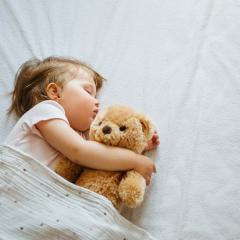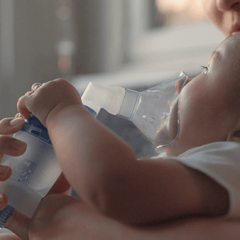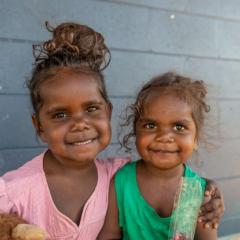Lorelle Holland, The University of Queensland and Maree Toombs, The University of Queensland
In some Australian states, children can legally be detained from the age of ten years old. This has led to over-policing and over-incarceration of Aboriginal and Torres Strait Islander children. First Nations children represent 50% of youth incarcerated during 2021.
Incarcerating children can cause irreparable harm, particularly for those who have complex health and social needs. Children who are removed from their families and communities during crucial stages of development and placed in youth detention are exposed to a form of social control, stigmatisation and criminalisation that in many cases inflicts lifelong harm.
Indigenous voices are seeking not just to raise the age of criminal responsibility to 14 years, but to implement an Indigenous-led model of care that provides culturally appropriate early childhood holistic care. In addition, addressing social issues of poverty, employment and access to health and housing would help provide stable lives for otherwise at-risk children.
Complex needs of children are not being met
The Australian Institute of Health and Welfare conducted a study monitoring the rates of young people in detention from June 2017 to June 2021. It found Indigenous children aged 10-17 were 20 times more likely to end up incarcerated than non-Indigenous youth, as of June 2021.
The 11th strategy of the “Commonwealth’s Closing the Gap Implementation Plan” describes a target of 30% reduction in the incarceration rate of Aboriginal and Torres Strait Islander youth by 2031. This target fails to include meeting the United Nations guidelines to raise the age of criminal responsibility to at least 14 years.
According to research, detaining a child to manage their behaviour does not prevent crime. Rather, it can restrict future employment and education opportunities and impede their ability to thrive as children. Incarceration of a child worsens a child’s experiences of trauma, and may lead to drug and alcohol misuse, homelessness and housing instability and mental distress, and increases their chances of adult incarceration. Adolescents who have been in youth detention have a 5-41% chance of dying from suicide, violence and drug overdose compared with those who have not been incarcerated.
The freedom of Aboriginal and Torres Strait Islander children’s lives will continue to be restricted while racialised health and justice systems exist in Australia. Racial discrimination surrounding Indigeneity increases the surveillance of young people’s behaviour and heightens the risk of incarceration.
Evidence suggests youth with complex neurodevelopmental and mental health needs, trauma, substance misuse and social disadvantage are overly represented in the youth justice system. Consistent and culturally appropriate developmental and mental health diagnostic assessment, support and interventions throughout Australia is largely absent for Aboriginal and Torres Strait Islander children undergoing criminal justice proceedings.
Australia’s slow journey to raise the age of criminal responsibility
In 2019, the Australian Council of Attorneys-General were tasked with setting up a working group to work towards raising the age of criminal responsibility from 10 to 14 years nationally. However, it has been left to the discretion of states and territories to implement the necessary policy and legislative changes:
The Australian Capital Territory has supported raising the age to 14
The Northern Territory has committed to raising the age to 12
South Australia is currently in discussion to reintroduce legislation to raise the age to 14
Tasmania has announced it will also raise the age to 14, likely in 2024
Victoria and New South Wales have not yet raised the age of criminal responsibility
Western Australia passed a motion in 2021 to raise the age to 14
Queensland rejected a bill to raise the age to 14.
Queensland has failed to act on its own commissioned reports that describe the vulnerability of children exposed to the youth justice system and the need to raise the age of criminal responsibility to at least 14 years of age. One such report includes the Atkinson Youth Justice Report.
Currently, the support for raising the age of criminal responsibility from 10 to 14 years in Queensland has received little bipartisan political support, despite widespread community support for change.
Young people need community-led solutions, not incarceration
Incarcerating Aboriginal and Torres Strait Islander children violates the UN Convention on The Rights of a Child and the UN Declaration of the Rights of Indigenous people.
The UN provides further principles of inclusion to “leave no one behind”. This agenda addresses the need to eliminate poverty, exclusion, inequalities and vulnerabilities in disadvantaged communities. Incarceration does not do this.
Further marginalising Aboriginal and Torres Strait Islander children who misbehave feels like another example of Australia’s legacy of oppressing First Nations Peoples. Ending child detention and pursuing community-led solutions to children’s behavioural issues would better ensure these children are not left behind.
The Yiriman project in Western Australia is an example of a community-led program in which Elders help care for troubled youth in remote locations to teach them bush skills, connect with their culture and identity, and help them get their lives on track and stay out of prison.
First Nations Courts such as the Koori Court help identify need and provide delayed sentencing options that deliver culturally appropriate programs away from detention.
All state and territory governments in Australia should abide by the UN guidelines to raise the minimal age of criminal responsibility and deliver on policies that leave no-one behind. Children aged 10-14 are still growing as people, and deserve a chance to thrive and to have special legal protections during childhood.
Recommendations from Aboriginal and Torres Strait Islander Peoples need to be heard and respected. Governments should consult with First Nations organisations about how best to address vulnerable children’s needs, and take steps to avoid incarcerating them. If Australia is serious about its intention to “close the gap” we need a future in which no child up to the age of 14 is detained, excluded from society and left behind.![]()
Lorelle Holland, PhD Candidate, The University of Queensland and Maree Toombs, Associate Dean (Indigenous Engagement) for the Faculty of Medicine, The University of Queensland
This article is republished from The Conversation under a Creative Commons license. Read the original article.



